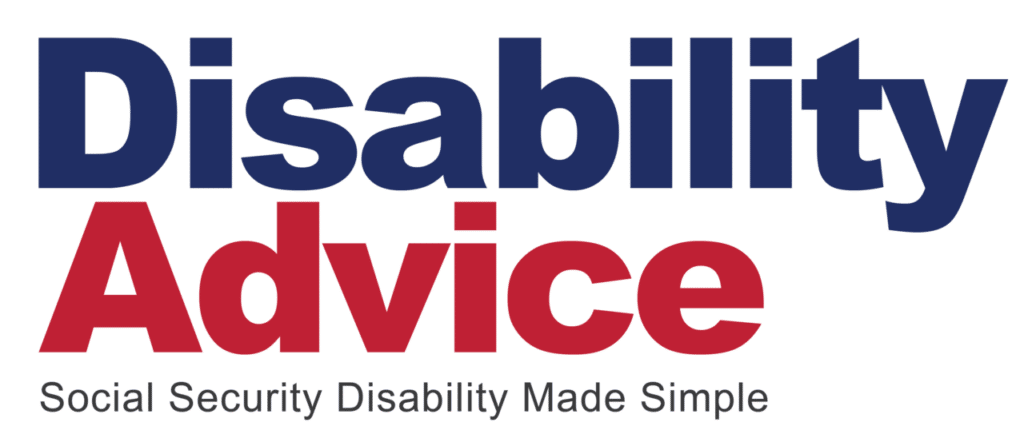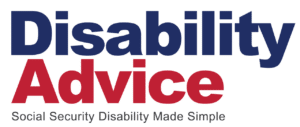Applying for Social Security Disability Benefits
Social Security pays monthly disability benefits to people who have medical conditions that make it impossible to maintain gainful employment. This includes conditions like carpal tunnel syndrome, diabetes, stroke, or sickle cell disease, which can severely limit one’s ability to work
If you have a qualifying disability and enough earnings history to meet Social Security’s requirements, you may be eligible for Social Security Disability Insurance, or SSDI, which pays benefits based on how much you have paid in Social Security taxes. Those with a disabling condition who do not have a qualifying work history may be eligible for Supplemental Security Income, or SSI, if they have limited income and resources.
If you’re unable to work due to a disability, you may be wondering how long you need to wait before
applying for Social Security Disability benefits. The truth is, you don’t have to
wait at all. But getting approved isn’t always easy. That’s where Disability Advice can help.
Many people assume they need to wait before filing for Social Security Disability Insurance (SSDI),
but the best time to apply is as soon as you are unable to work. Unfortunately,
most first-time applicants are denied due to missing documentation or application mistakes.
At Disability Advice, we help you submit a strong claim the first time so you don’t have to wait
even longer for the benefits you deserve. There is no waiting period to apply for SSDI. If you
have a medical condition expected to last at least 12 months or that may result in death,
you should apply as soon as possible. The sooner you apply, the sooner your claim can be processed.
However, there is a mandatory five-month waiting period before you can start receiving benefits if
you are approved. This makes it critical to submit a strong application upfront,
as denials can add months or even years to the process.
Many SSDI applications are denied not because the applicant doesn’t qualify,
but because of missing medical records, incomplete paperwork, or errors in the
application. This forces people into a lengthy appeals process, delaying the benefits they need.
At Disability Advice, we know what the Social Security Administration is looking for in a
successful claim. Our experts can help gather the necessary medical evidence,
ensure your paperwork is complete, and present your case in the best
possible way to improve your chances of first-time approval.
We specialize in guiding applicants through the SSDI process, reducing errors that lead
to denials and delays. With our expertise, you can avoid common pitfalls and maximize your chances of
approval. Filing for SSDI can be overwhelming, and mistakes can cost you valuable time.
Let Disability Advice help you build a strong case so you can get approved as quickly as possible. If
you need help filing or appealing a disability claim, visit disabilityadvice.org today.
- Preparation is Key: Before applying for SSDI, gather all necessary personal, medical, and employment information to prevent delays or denials due to incomplete applications.
- Legal Representation Matters: Consider hiring experienced legal professionals to navigate the complex application process, address potential issues, and improve the likelihood of approval, particularly during appeals.
- Documentation is Crucial: Ensure all required documents, including medical records and proof of identity, are accurate and submitted with your application to avoid rejections based on technical grounds.
- Act Quickly on Denials: If denied, respond promptly by appealing within the 60-day deadline, as this could be crucial for overturning the decision and securing your benefits.
To apply for disability benefits, you must submit an application to Social Security and provide documentation verifying your medical condition, identity, and work history. The Social Security Administration denies most applications, often due to technical problems with the application. At Disability Advice, we can handle the application process for you. We know what it takes to get your application approved the first time or on appeal if you have already received a denial.
How to Apply for Social Security Disability Benefits
Although SSDI and SSI are separate programs with different eligibility requirements, the application process is essentially the same. You can apply for disability benefits online through your Social Security account. If you cannot complete the application online, you can apply over the phone or in person at your local Social Security office. Our Social Security Disability lawyers can handle the entire process from start to finish.
Information You Will Need
The disability application will ask for the information shown in the table below:
| Information About You | Medical Information | Job Information |
Your date of birth, place of birth, and Social Security number The name, Social Security number, and date of birth of your current spouse and any former spouses The dates and locations of marriages, divorces, and the date of any former spouse’s death The contact information of two people familiar with your disabilities who can help with your claim Other disability benefits you receive, such as workers’ compensation Your banking information | Names and contact information for all health care providers that have examined you or treated your condition List of medications List of medical tests you have taken and the prescribing physicians | A list of all of your jobs for the last 15 years Your education history A list of any specialized training you have received |
Gather this information ahead of time and have it with you when you apply. Your application may be delayed or denied if any information you provide is missing, incomplete, or inaccurate.
Documentation Requirements
Social Security will need documentation to verify your information. You may be required to submit the following documents with your application:
- An original, certified birth certificate
- Proof of citizenship
- Military discharge paperwork
- Last year’s W-2 forms
- Last year’s tax returns if you were self-employed
- Any medical records you have
- Workers’ compensation paperwork
- A voided check or paperwork showing direct deposit information
If you do not have all of the required documents, this doesn’t mean you should delay your application. The Social Security Administration can obtain some of these documents for you. We can also help you gather documentation at Disability Advice.
Can You Apply for SSDI While Working?
To qualify for SSDI, you must be unable to earn more than Social Security’s substantial gainful activity limit. This limit is adjusted annually according to the national average wage index. In 2025, the earnings limit is $1,620 for most people. If you are blind, the limit is $2,700.
If your earnings are above this limit, you will not qualify for Social Security Disability, even if you earn less than before the onset of your condition. If your earnings are below these limits, you may qualify for disability benefits if the SSA considers your disability severe and you meet all other qualifications. In some cases, the SSA may require you to complete Form SSA-821-BK, which is used to evaluate whether your work activity should be considered substantial gainful activity.
Common Issues with The Application Process for SSDI
To qualify for SSDI, you must prove you have a qualifying disability. You must also have worked long enough and recently enough to qualify for benefits. A qualifying disability is a medical condition that prevents you from working and is expected to last at least a year or result in your death.
The Social Security Administration denies approximately 67 percent of all Social Security Disability applications. From 2012 through 2021, the SSA only approved about 21 percent of disability applications at the initial application level. The remaining approvals occurred during appeals, which can take significantly longer.
Social Security will likely deny your application if it determines the following:
- You earn more than the substantial gainful activity level.
- Your medical condition doesn’t meet Social Security’s definition of disability.
- You haven’t earned enough work credits.
- You haven’t provided the information necessary to prove your disability.
According to the Social Security Administration, the highest percentage of denials are for non-medical reasons. Many of these denials result from common mistakes during the application process, as described below.
Employment After Submitting Your Application
The Social Security Administration will track your work activity during the application process. If you return to work, the administration will perceive it as evidence that your disability does not prevent you from working and deny your application. It doesn’t matter if you do the same type of work as before or a different type of work, or even if you earn significantly less than before because of your disability.
Incomplete Application Information
If the information you provide to Social Security is incomplete, your application may be delayed or denied. The Disability Report portion of your application requires in-depth information about your diagnosis, medical history, medications, job history, and education. The Social Security Administration relies on this report to understand the nature and extent of your disability. Every detail matters. If a question does not apply or you do not know the answer, write N/A or unknown in the space provided rather than leaving it blank.
Inaccurate Information in Your Application
Answer every question truthfully to the best of your knowledge. If you do not know the answer, it is better to write that you do not know rather than guess. The Social Security Administration will check public records to verify your information. If it finds any inaccuracies, it may deny your application, even if you were not intentionally dishonest.
Lack of Required Documentation
If the Social Security Administration cannot verify all the information in your application, your application could be denied. You must provide all the documentation the SSA requests with your application. Although the SSA can help you obtain some of your documents, you likely must provide some. We can help you obtain all the required documents and ensure they provide all of the information the SSA needs to approve your application.
Lack of Sufficient Medical Records
Even if your disability seems obvious, the Social Security Administration relies on your medical records to verify it. You cannot prove the existence of a medical condition without diagnostic tests, medical reports, and treatment records that document your disability. If you have not received treatment, the SSA may assume that your medical condition will improve in less than 12 months with treatment.
Lack of Monitoring and Follow-Up After Applying
After you submit your application, the Social Security Administration may request additional information or require you to attend a special medical examination. You will receive a letter in the mail notifying you in either case. You can also check your application’s status online. If you fail to respond or miss the appointment, the SSA may conclude that you do not have a qualifying disability and deny your claim.
Failure to Appeal
A denial of benefits is not final. Less than 22 percent of initial SSDI applications are approved. Your application could still be approved through an appeal, but you must file your appeal within 60 days.
Mistakes by the Social Security Administration
In some cases, the Social Security Administration may have incorrect information about your work history, which could disqualify you unfairly. A human manually reviews every application, and sometimes, reviewers make mistakes. Such an error can result in a denial even if you are qualified and do everything right.
Lack of Legal Representation
You are much more likely to receive approval if you are represented by a legal professional with experience handling Social Security applications. Our knowledgeable Social Security lawyers at Disability Advice can obtain the required documentation and complete your application. We will ensure the information on your application is correct and complete. We can also verify that Social Security’s records about your work history are correct.
What to Expect After Applying
After you submit your application, the Social Security Administration will determine whether you are currently working and check your work history to determine whether it meets SSDI requirements. If so, the SSA will send your application to the Disability Determination Services, or DDS, office in your state.
The DDS is a state agency composed of state agency medical consultants and disability examiners who determine whether your medical condition meets the definition of disability. They will review the medical information provided with your application and contact your doctors. The examiners will ask your doctors for the following information:
- When your disability began
- What treatment you have received
- How long your disability is expected to last
- Your medical test results
- How your disability limits your ability to walk, sit, lift, or perform other work-related activities
If the DDS is unsatisfied with the information provided, you may be required to submit additional documents, answer more questions, or attend a consultative examination that the Social Security Administration will arrange and pay for. Your benefits may be denied if you fail to provide the additional information. If you cannot attend the consultative examination, you must notify the SSA to reschedule it.
The Criteria the State Agency Uses To Evaluate Your Claim
The DDS will also investigate your current work activities and use all the information it has gathered and the information you provided in your application to determine whether you qualify for disability benefits. The DDS examiner will follow a five-step sequential evaluation process to determine whether to approve or deny your application.
| The Question |
|---|
| 1. Are you working and earning more than the substantial gainful activity level? |
| The Answer is Yes | The Answer is No |
|---|---|
| Your application will likely be denied. | The DDS proceeds to the next step. |
| The Question |
|---|
| 2. Is your condition severe? |
| The Answer is Yes | The Answer is No |
|---|---|
| The DDS proceeds to the next step. | Your application will likely be denied. |
| The Question |
|---|
| 3. Is your condition listed on the listing of impairments, or is it equally severe to the listed conditions? |
| The Answer is Yes | The Answer is No |
|---|---|
| The DDS proceeds to the next step. | Your application will likely be denied. |
| The Question |
|---|
| 4. Can you do the work you did before? |
| The Answer is Yes | The Answer is No |
|---|---|
| Your application will likely be denied. | The DDS proceeds to the next step. |
| The Question |
|---|
| 5. Can you do any other type of work? |
| The Answer is Yes | The Answer is No |
|---|---|
| Your application will likely be denied. | Your application will likely be approved. |
| The Process | The Answer Is Yes | The Answer is No |
|---|---|---|
| 1. Are you working and earning more than the substantial gainful activity level? | Your application will likely be denied. | The DDS proceeds to the next step. |
| 2. Is your condition severe? | The DDS proceeds to the next step. | Your application will likely be denied. |
| 3. Is your condition listed on the listing of impairments, or is it equally severe to the listed conditions? | The DDS proceeds to the next step. | Your application will likely be denied. |
| 4. Can you do the work you did before? | Your application will likely be denied. | The DDS proceeds to the next step. |
| 5. Can you do any other type of work? | Your application will likely be denied. | Your application will likely be approved. |
Once the DDS reaches a decision, the Social Security Administration will mail you a letter notifying you of whether your benefits have been approved or denied. It generally takes six to eight months to receive an initial determination.
Can an SSDI Application Ever Be Expedited or Receive Priority Handling?
You may be able to receive your disability determination sooner if you qualify for one of the Social Security Administration’s fast-track processes. Social Security will identify certain types of cases for priority handling. Some of these include:
- Compassionate Allowance (CAL) Cases; For conditions on the SSA’s list compassionate allowances list, such as rare cancers
- Terminal Illness (TERI) Cases; For terminal conditions and those in hospice care
- Military Casualty/Wounded Warrior (MC/WW)/100% Permanent & Total cases; For 100% Disabled Veterans
- Quick Disability Determination (QDD) Cases; For applications with a high probability of approval and evidence that is immediately available.
How Long Does it Take to Receive SSDI Benefits?
Once your application is approved, the SSA will require you to complete a five-month waiting period before your benefits begin. However, the waiting period does not begin on your approval date. Instead, it begins on the date the SSA determines your disability began. If your application is approved six to eight months after you applied, your waiting period has likely elapsed, and your benefits will start the month after you are approved. There is no waiting period if you have amyotrophic lateral sclerosis.
You will receive your SSDI payments on the second, third, or fourth Wednesday of every month, depending on the day of the month you were born, as shown below:
| Birthday | Benefit Date |
| 1st – 10th | Second Wednesday |
| 11th – 20th | Third Wednesday |
| 21st – 31st | Fourth Wednesday |
What If My SSDI Claim Is Denied?
If your claim is denied, you have a right to file an appeal, but the SSA only gives you 60 days to do so. The appeals process involves four levels. If you disagree with the outcome at any level, you have 60 days to file a new appeal at the next level. The four levels are as follows:
- Reconsideration – asking the SSA to review your application again
- An administrative law judge hearing
- Appeals Council Review
- A lawsuit in federal district court
The appeals process is typically lengthier than the initial application process. You can also restart the process by filing a new application rather than going through the appeals process. However, you may lose some of your SSDI back pay if you choose this option.
Being denied benefits can be devastating, but it does not mean you are ineligible. Having an experienced legal team on your side is crucial if your claim has been denied. The odds of being approved during the appeal process are lower than in the initial application. At Disability Advice, we can identify the factors that led to your denial and make the necessary changes to get you approved.
If your claim is denied, having an experienced legal team to help is crucial. Just because your claim was denied doesn’t mean that you are not entitled to benefits. The SSA could have made an error, or there is something that we can do differently to help you qualify.
Contact Us for Help with Your Initial Application or Appeal
We are here to answer all your questions about Social Security Disability and guide you through the process. We can help you file your disability claim to give you the best shot at approval with the initial application. Even if you have already received a denial, it is not too late to contact us. We can advise you of your options and file your appeal for you. Our experienced attorneys have a proven track record and know what it takes to get you the benefits you deserve. Contact us today for a free Social Security Disability evaluation.
For Illustration Purposes Only, See Step One Questions Below:
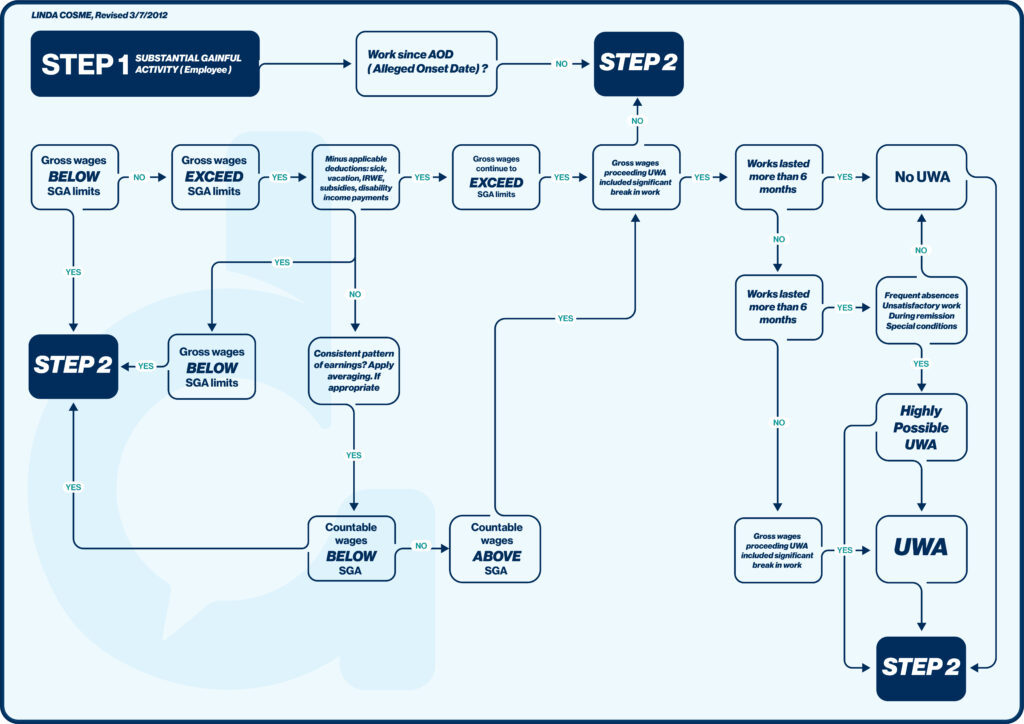

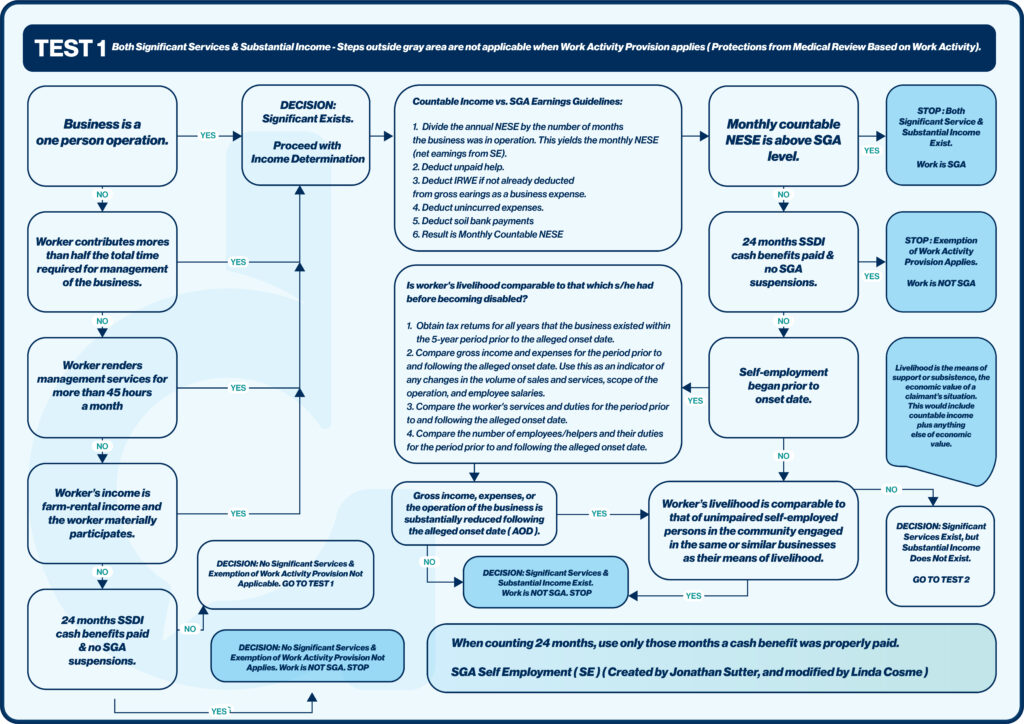
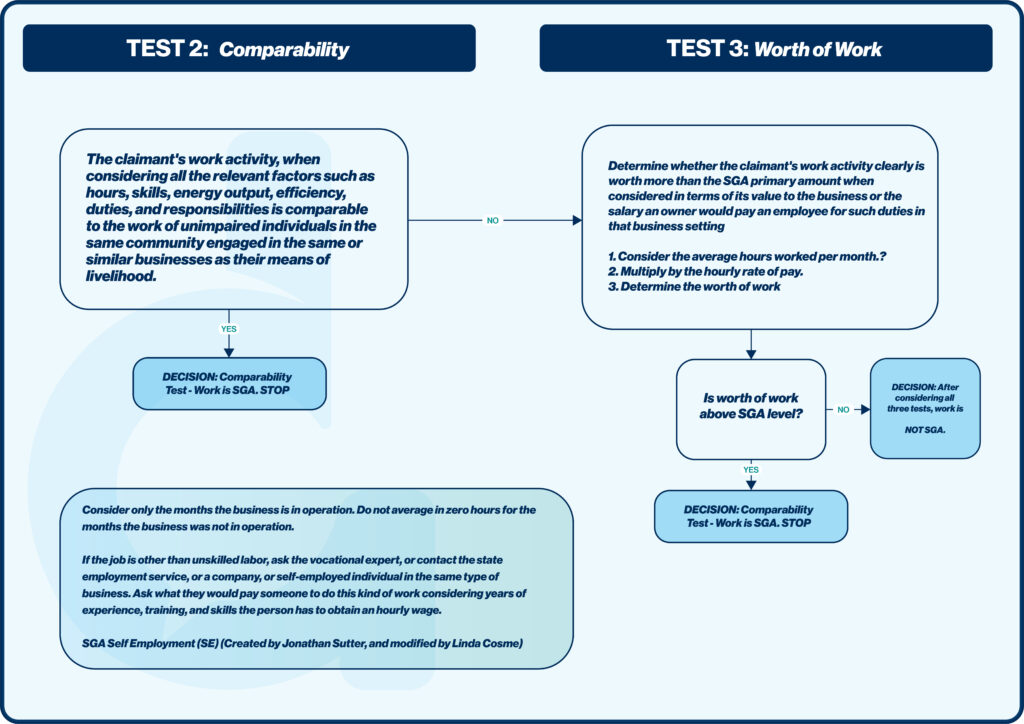
- Free case evaluation
- Assist with denied claims
- Ensure you have all documents
- Make the process easy for you
- How to Apply for Social Security Disability Benefits
- Can You Apply for SSDI While Working?
- Common Issues with The Application Process for SSDI
- What to Expect After Applying
- How Long Does it Take to Receive SSDI Benefits?
- What If My SSDI Claim Is Denied?
- Contact Us for Help with Your Initial Application or Appeal

“Professionalism at its best. From intake to getting my claim started, they are the ones you need. 100% recommend to everyone.”
Pablo P.

“Having never gone through this process before, it was very easy and straightforward. VERY professional and polite.”
Alan A.

“I had a great experience with my representative. She was very friendly and she made the process very easy. I’m glad I had the pleasure to work with her in filing my claim. She provided great customer service.”
Dana C.

“I was very nervous about reaching out for help with disability benefits. This experience was so much easier than what I thought it would be. They were understanding and supportive, and answered all of my questions. I would highly recommend them.”
Alice P.

“One of the best customer service experiences I have ever had. Patient and kind and couldn’t of made my experience better. Thank you for all the help.”
Jama M.

“I was very pleased and impressed by the advocate. I feel that my chances of receiving my disability benefits are more likely to come in a timely manner.”
Danny C.
Fill in the form below and let us know how we can help you!
"*" indicates required fields

“Professionalism at its best. From intake to getting my claim started, they are the ones you need. 100% recommend to everyone.”
Pablo P.

“Having never gone through this process before, it was very easy and straightforward. VERY professional and polite.”
Alan A.

“I had a great experience with my representative. She was very friendly and she made the process very easy. I’m glad I had the pleasure to work with her in filing my claim. She provided great customer service.”
Dana C.

“I was very nervous about reaching out for help with disability benefits. This experience was so much easier than what I thought it would be. They were understanding and supportive, and answered all of my questions. I would highly recommend them.”
Alice P.

“One of the best customer service experiences I have ever had. Patient and kind and couldn’t of made my experience better. Thank you for all the help.”
Jama M.

“The person I spoke with was very knowledgeable and very thorough with answering all of my questions and making sure all my information was correct. He was very patient, kind, and was very helpful. I wasn’t sure if I would qualify, and he checked and took all of my information. The process was made very easy, thank you so much for your help.”
Patrice I.
